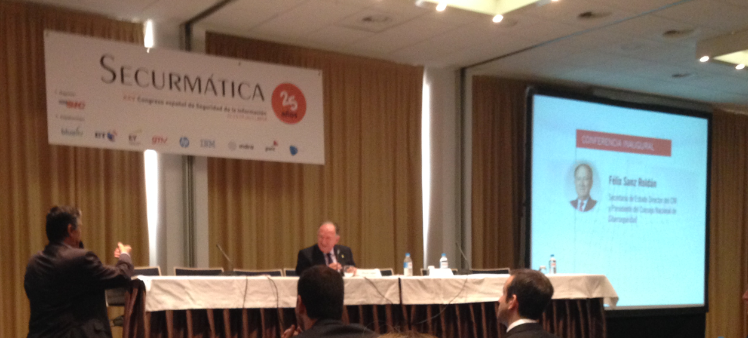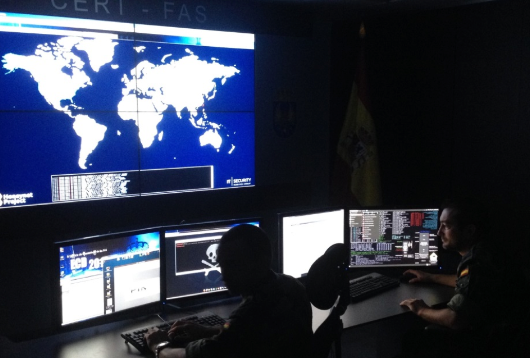
The twenty-fifth edition of Securmática was held in Madrid (Spain) on April 22, 23 and 24, 2014. Although its content is not usually highly technical, it is a really interesting event for catching-up with the cybersecurity industry at an “institutional” level.
This approach helps us to maintain a better visibility regarding the actions and initiatives performed by government, institutions and private security companies collaborating on different fields in the context of cybersecurity.
The keynote was performed by Félix Sanz Roldán, Director for the Spanish National Intelligence Service (CNI) and President of the National Cybersecurity Spanish Council. His speech was extremely interesting and confirmed for us that the 5th domain is being taking into account very seriously by governments around the world.
Although the motto for this years’ Securmática was “Business Protection: everything becomes more complicated “, Mr. Sanz not only talked about the difficulties that we all are facing in this field, but also transmitted a hopeful message: humanity has suffered complexity practically since its inception, but that has not stopped us from prevailing. In our “digital” field, unity is more necessary than ever. On the other hand, he made very clear that cybersecurity is a top priority for Spain.
The first day was dedicated to the institutional approach regarding cybersecurity. Some of the most interesting presentations focused on topics such as “National Cybersecurity” strategy, digital actions to protect the national heritage or the “next-steps” calendar for Sectorial Strategic Plans on which we can learn from first hand about the evolution of the Spain Cybersecurity Plan.
There was an interesting point from the army commander regarding the utilization of cyberweapons. Mr. Enrique Cubeiro, Cyberdefense Commander in Chief for the Spanish Army, explained the digital exercises (from isolated operations to international drills) that several countries perform in order to improve their cyberdefense capabilities.
When one of the attendees asked if Spain has cyber weapons capabilities, the answer was: We have what we need for when it is needed.
The second day was dedicated to more “commercial” talks; nevertheless several interesting topics were discussed from the perspectives of different sectors (assurance companies, banking industry, energy sector, etc.). Of course, the term “cyberintelligence” was perhaps the most used term during this day.
Finally, the third day was more focused on security from the strategic point of view. In addition, there were several presentations discussing legal topics such as new regulations in Europe for data breach notifications, IT monitoring and legality and a highly interesting topic regarding collaboration approaches and opportunities for public/private industry and governments.
All in all it was a really good exercise to stay up to date with the institutional changes that cyber security is causing at different levels (government, institutional, private sector, etc.) and of course, a good opportunity to meet some key people in our industry that usually doesn´t show up that easily.




















Securmatica XXV